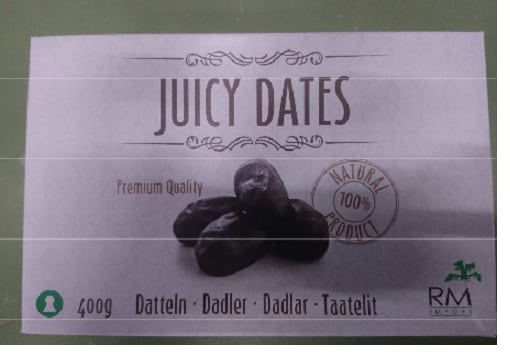Statens Serum Institut (SSI) said 22 patients were hospitalised in an update to a previous count of 17 sick.
They became ill from December 2017 to February 2018 and live across the country.
Fifteen women and 12 men have been infected and median age is 65 years (range 15-90).
Case control study
Virus from 18 patients was identified as type 3A and genetic studies have shown they fall into closely related groups.
SSI said a case control study pointed to dates as the source of infection as no other food could explain the outbreak as well as increased sales of dates during the Christmas season and the increase in disease four weeks after.
In the study, 19 patients responded to questions about whether they had eaten a number of specific foods compared to responses from a comparable control group of 54 people.
Among cases, 89% answered they had eaten dates compared to 28% of the controls.
The product's long durability means it can be consumed over a long period and onset of illness with Hepatitis A is around four weeks.
A total of 23 ill people said they had eaten dates during the infection period and most added product was purchased from Rema1000. Seven could remember the name was "Juicy dates".
Trace back investigation

Fødevarestyrelsen (Danish Veterinary and Food Administration) trace back found dates from Iran were imported by RM Import A/S and sold in Rema1000 as well as in Norway and Germany.
RM Import recalled dates from the Danish supermarket in early February. A move agencies said probably prevented more cases.
The firm previously told us its supplier is FSSC 22000 certified and it did not believe its dates are the source of illness.
Dates from three patients' homes have been investigated with PCR and all samples were negative for HAV.
SSI said it is difficult to detect hepatitis A in food so it is not surprising it has not been possible to identify the virus in samples of dates collected from patients.
“With the increasing international trade in fresh and frozen foods, including fruit and vegetables from countries where HAV is endemic, the risk of infection increases through the consumption of HAV-contaminated foods,” added the agency.
Norway reported one HAV infection in a patient who had eaten dates and typing showed a match to Danish patients.
Bama Gruppen AS withdrew Juicy Dates 400g sold in Rema1000 stores with best before date 10.6.2018 in early February.
It is the second national foodborne hepatitis A outbreak in Denmark.
The first was part of a Nordic outbreak in 2012-13 caused by frozen strawberries.
